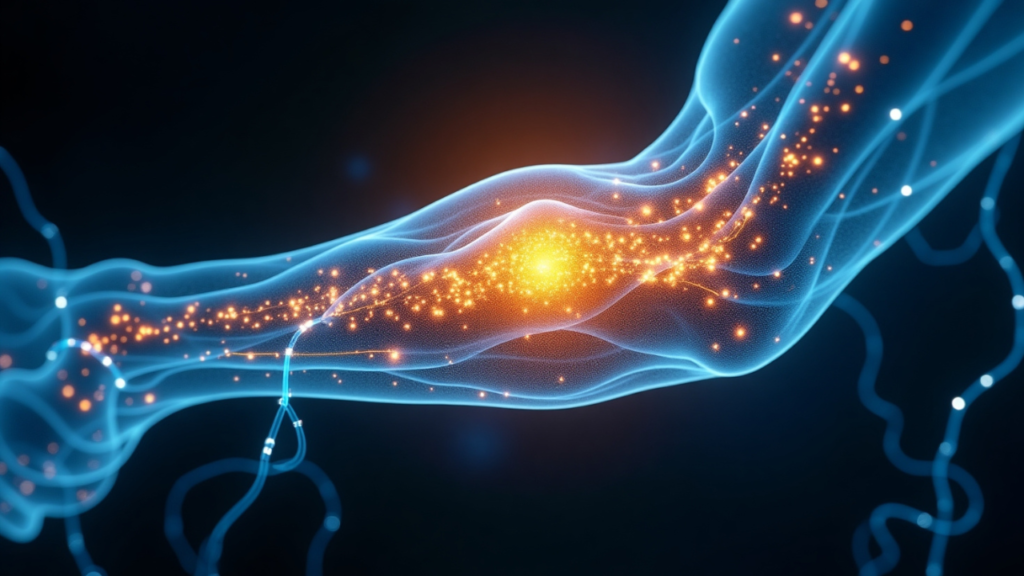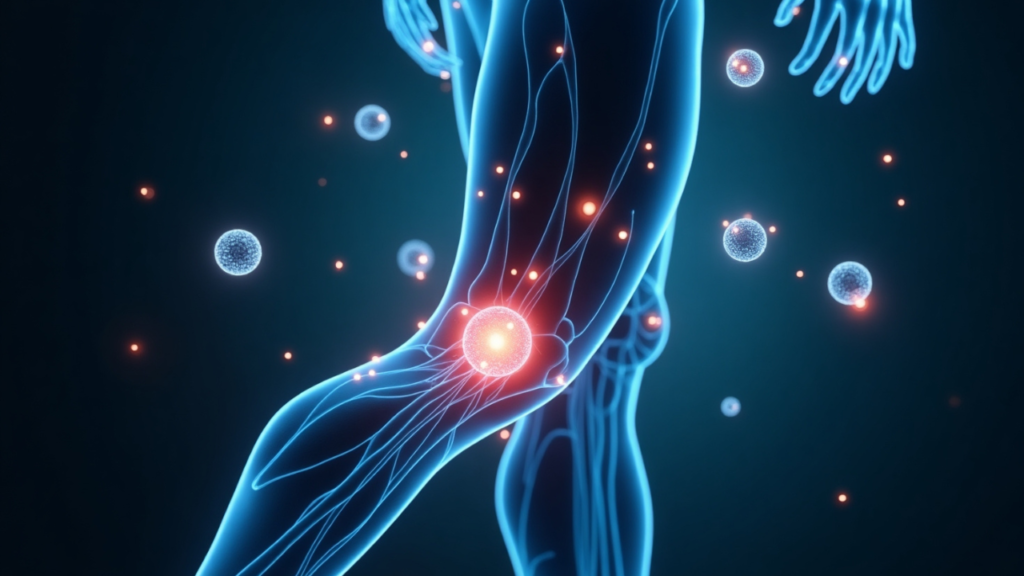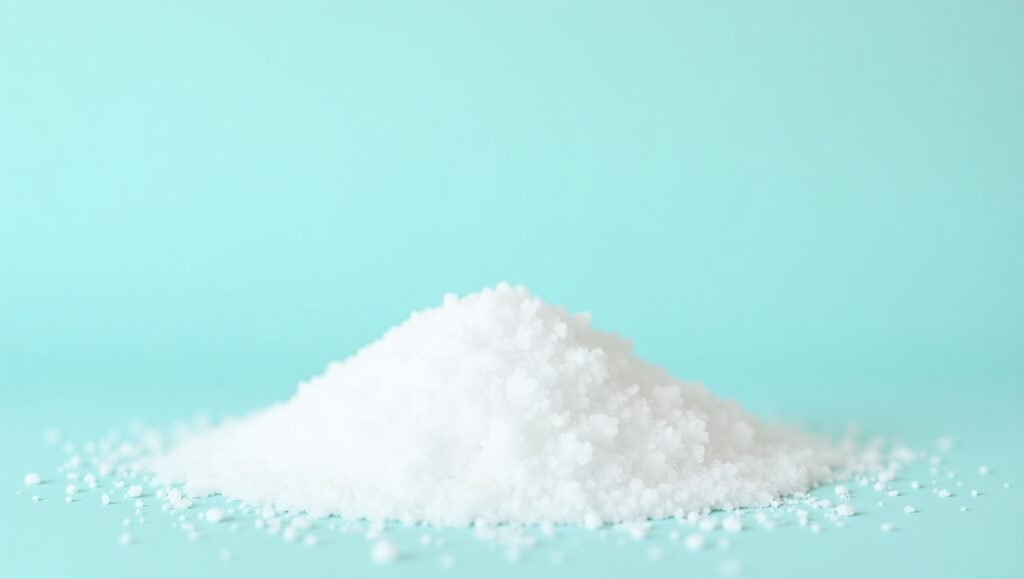If you’ve ever been jolted awake by a sudden, stabbing leg cramp, you know how agonizing it can be. Muscle spasms—especially in the calves and feet—can strike without warning, leaving you desperate for relief. The good news? The best magnesium for leg cramps can be a game-changer. Magnesium is a vital mineral that helps muscles relax, supports nerve function, and balances electrolytes—all of which play a crucial role in preventing painful spasms.
Table of Contents
ToggleWhy Magnesium is Essential for Preventing Leg Cramps

Magnesium plays an essential role in more than 300 biological processes in the body, including the coordination of muscle tightening and loosening. When magnesium levels are low, muscles can contract excessively and fail to relax properly, leading to painful spasms and cramps—particularly in the legs.
How Magnesium Deficiency Causes Leg Cramps?

Research shows that magnesium plays a key role in:
Regulating neuromuscular signals
Balancing electrolytes (calcium, potassium, sodium)
Supporting proper blood flow to muscles
A deficiency disrupts these functions, increasing the likelihood of nocturnal leg cramps, exercise-induced spasms, and restless leg syndrome.
Types of Magnesium: Which is the Best for Leg Cramps?
Not all magnesium supplements are created equal. Some forms are better absorbed, while others are more effective for specific issues like muscle cramps. Below, we break down the most common types and identify the best magnesium for leg cramps.
1. Magnesium Citrate

Absorption: High
Best For: Quick relief from cramps, constipation support
Drawbacks: May cause loose stools in high doses
Magnesium citrate is one of the most popular and well-absorbed forms. It’s often recommended for muscle cramps because it enters the bloodstream quickly, helping to relax tense muscles.
2. Magnesium Glycinate

Absorption: Excellent
Best For: Chronic muscle cramps, anxiety, and sleep support
Drawbacks: Slightly more expensive
Magnesium glycinate is bound to glycine, an amino acid that enhances absorption and has a calming effect. This makes it ideal for nighttime leg cramps and restless leg syndrome. Many experts consider it the best magnesium for leg cramps due to its high bioavailability and gentle effects on digestion.
3. Magnesium Malate

Absorption: Good
Best For: Fatigue-related cramps, fibromyalgia
Limitations: Might not provide immediate relief for sudden muscle cramps
Malate is combined with malic acid, which supports energy production. This type is ideal for individuals who suffer from cramps caused by overworked muscles.
4. Magnesium Chloride (Topical/Oil)

Absorption: Effective when applied to skin
Best For: Localized cramp relief
Drawbacks: Not as systemic as oral supplements
Magnesium oil or lotion can be massaged directly onto cramped muscles for quick relief. It bypasses the digestive system, making it a great option for those with sensitive stomachs.
5. Magnesium Sulfate (Epsom Salt)

Absorption: Through skin (baths)
Best For: Relaxation and mild cramp relief
Drawbacks: Not as potent as oral supplements
Epsom salt baths are a relaxing way to absorb magnesium, though they may not provide enough magnesium to fully prevent cramps alone.
6. Magnesium Taurate

Absorption: Good
Best For: Heart health and muscle function
Drawbacks: Less common in stores
This form combines magnesium with taurine, which supports cardiovascular health and muscle relaxation.
Magnesium-Rich Foods to Prevent Leg Cramps
While all forms can help, magnesium glycinate stands out as the best option due to its superior absorption, muscle-relaxing properties, and minimal side effects. Magnesium citrate is also a strong contender for fast relief.
Magnesium-Rich Foods to Prevent Leg Cramps
While supplements are effective, getting magnesium from whole foods ensures better absorption and additional nutrients. Here are the best dietary sources:
1. Leafy Greens

Spinach, kale, collard greens, and beet greens are rich sources of magnesium.
Tip: Lightly steam greens to improve mineral absorption.
2. Nuts and Seeds

Almonds, cashews, pumpkin seeds, and sunflower seeds are excellent sources.
Tip: A handful of almonds provides about 20% of your daily magnesium needs.
3. Legumes

Black beans, chickpeas, and lentils are rich in magnesium and fiber.
Tip: Soak beans before cooking to reduce anti-nutrients.
4. Dark Chocolate

High-quality dark chocolate (70%+ cocoa) is surprisingly rich in magnesium.
Tip: A small square can satisfy cravings while boosting magnesium intake.
5. Fatty Fish

Salmon, mackerel, and halibut provide magnesium and omega-3s.
Tip: Wild-caught fish has higher nutrient density.
6. Avocados

One medium avocado contains about 15% of your daily magnesium needs.
Tip: Add avocado to smoothies or salads for extra creaminess.
7. Bananas

Known for potassium, bananas also provide magnesium.
Tip: Eat with nut butter for a muscle-cramp-fighting snack.
8. Yogurt and Kefir

Fermented dairy products offer magnesium and probiotics.
Go for sugar-free varieties to minimize hidden sweeteners in your diet.
9. Tofu and Edamame

Soy-based foods are great plant-based magnesium sources.
Tip: Choose organic, non-GMO tofu for best quality.
Pro Tip: Pair magnesium-rich foods with vitamin D (sunlight, fatty fish) and fiber for optimal absorption.
Final Verdict: What’s the Best Magnesium for Leg Cramps?

After evaluating all options, here’s our top recommendation:
Best Overall: Magnesium Glycinate
✅ Why?
Highly absorbable
Gentle on digestion
Reduces muscle cramps and improves sleep
Best for Fast Relief: Magnesium Citrate
✅ Why?
Rapid absorption
Helps with occasional cramps and constipation
Best Topical Option: Magnesium Chloride Oil
✅ Why?
Direct application to cramped muscles
Great for sensitive stomachs
Best for Athletes: Magnesium Malate
✅ Why?
Supports energy production
Reduces exercise-induced cramps
Best Budget-Friendly: Magnesium Oxide (with caution)
⚠️ Note: Less absorbable but widely available. Only use if other forms aren’t an option.
Lifestyle Tips to Maximize Magnesium Benefits
Stay hydrated (dehydration worsens cramps).
Stretch daily, especially before bed.
Limit caffeine and alcohol (they deplete magnesium).
Manage stress (cortisol reduces magnesium levels).

